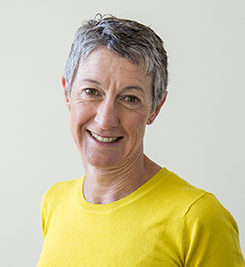 As a child health researcher, I'm often asked by new Mums what's the best thing they can do for their babies? And my answer is always the same, breastfeed.
As a child health researcher, I'm often asked by new Mums what's the best thing they can do for their babies? And my answer is always the same, breastfeed.
That is why I get frustrated beyond belief, when in 2016, I still read article after article of mothers being publicly shamed for 'daring' to feed their child in public.
In Australia, less than 40 per cent of babies under four months of age are exclusively breastfed. [1]
There are many barriers a woman faces when breastfeeding, but being judged for exercising her right to care for her baby is without a doubt one of them.
So for World Breastfeeding Week, I'm here to tell you why breastfeeding is so important for our babies, our planet and our economy, and why it's high time we ALL got behind breastfeeding mothers to support and encourage them.
It's your baby's own 'personalised medicine'…
Currently in research circles there is a buzz about the concept of 'personalised medicine' which means tailoring medical treatment and medications to be specific to each and every person to get the best individual health outcome.
Well, breastfeeding is the original personalised medicine, changing from feed to feed, and even hour to hour, it will provide exactly the right composition of food for the growing baby.
It's free…
Unlike personalised medicine breastfeeding is free, readily available, and is the only food or fluid needed from birth to six months of age.
It helps provide lifetime protection from disease…
Children who are breastfed have lower rates of sickness and death during childhood and this gain continues until later in life.
While much of our research at The Kids Research Institute Australia focuses on finding treatments and cures for diabetes, heart disease, cancer, obesity and allergies, breastfed children will experience lower rates of all these illnesses.
It's good for their IQ…
Research shows on average, babies who are breastfed have a 2.6 point higher intelligence quotient than non-breastfed babies, with larger differences for longer durations of breastfeeding.[2]
It's good for the planet…
Sustainable development is the focus of this year's World Breastfeeding Week and that's why it's important to point out that breast milk is a healthy, viable, non-polluting, sustainable resource.
The production of formula produces greenhouse gas emissions which contributes to global warming and pollution levels.
One study showed 720,450 tonnes of milk formula sold annually in 6 Asian countries generated almost 2.9 million tonnes of Greenhouse Gas. This is equivalent to nearly 11.3 billion kilometres driven by an average passenger vehicle or 1.03 million tonnes of waste sent to landfill sites. [3]
It's good for the economy…
When a mother gives her baby the best start to life, it means less costs to the health and education systems.
In fact, not breastfeeding is associated with economic losses of about $302 billion annually or 0.49% of world gross national income. [4]
It reduces global poverty…
Children in vulnerable and impoverished communities who aren't breastfed are often the first to die.
Sadly, 45 per cent of all deaths worldwide are associated with malnutrition, including sub-optimal breastfeeding, in children under 5.
Every drop counts…
As a dietitian and child health researcher, I understand that some women will find it difficult or impossible to breastfeed for a number of both medical and personal reasons. Of course, mothers need to do what is necessary to feed their baby and sometimes formula is the answer.
However, I do encourage all new Mums to give breastfeeding a go in the first instance because even a couple of days' worth of this precious liquid can have huge health benefits to your child.
So what can you do to help support breastfeeding Mums?
Breastfeeding is for everyone, it benefits everyone and it needs to be supported by all of our society.
Men, partners and husbands you are one of the greatest advocates for your child to be breastfed. If you provide support and encouragement to your partner then they are more likely to breastfeed and your child will reap the benefits. Bathing and cuddling baby are ways you can bond with your new little one, while mum can do this by breastfeeding.
Bosses, be conscious of women coming back to work after having a baby. Give them time and private spaces to express milk.
Health professionals, ensure you have the latest evidence-based advice for expectant mothers and provide them with a list of places they can go to for support.
And finally, let's stop judging mothers who breastfeed in public. Babies should be fed when they're hungry and women should be praised for tending to their baby's health needs.
They say it takes a village to raise a child, but it actually takes a community to support breastfeeding.
Dr Roslyn Giglia is a dietician, nutritionist and child health researcher at The Kids Research Institute Australia.
[1] http://www.aihw.gov.au/publication-detail/?id=10737420927
[2] Horta BL, de Mola CL, Victora CG. Breastfeeding and intelligence: systematic review and meta-analysis. Acta Paediatr Suppl 2015.
[3] Linnecar A, et al. Formula for Disaster. IBFAN Asia/BPNI; 2014. Available at: h_p://ibfan.org/docs/FormulaForDisaster.pdff
[4] Victora, Cesar G. et al. Breastfeeding in the 21st century epidemiology mechanisms, and lifelong effect. The Lancet. 2016
